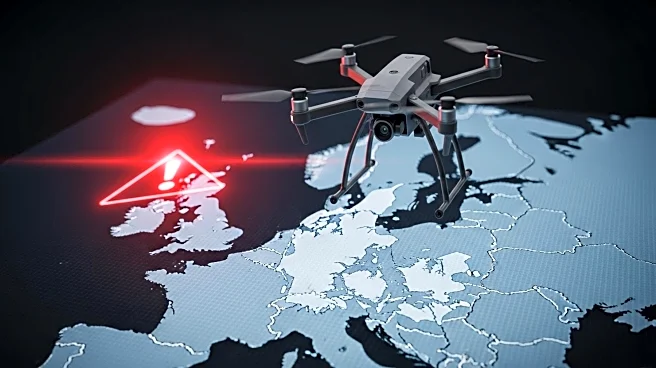What is the story about?
What's Happening?
On September 22, 2025, large unidentified drones disrupted flights at Copenhagen Airport in Denmark and Oslo Airport in Norway, leading to temporary shutdowns and diversions. The incidents were described by Denmark's Prime Minister Mette Frederiksen as the most serious attack on Danish critical infrastructure to date. Authorities in both countries opted not to shoot down the drones due to the risk of collateral damage. The disruptions highlighted heightened security concerns in northern Europe amid recent reports of Russian airspace violations and other hybrid threats.
Why It's Important?
The drone incidents at major airports in Denmark and Norway underscore the growing security challenges in Europe, particularly in relation to Russian activities. These events have heightened concerns about the vulnerability of critical infrastructure to aerial threats, potentially impacting aviation security protocols and international relations. The situation may lead to increased scrutiny and defensive measures by NATO countries, affecting regional stability and diplomatic engagements with Russia. The economic impact on airlines and passengers due to flight cancellations and diversions also highlights the broader implications for the travel industry.
What's Next?
Authorities in Denmark and Norway are investigating the drone incidents to identify the operators and assess the threat level. NATO is likely to enhance its surveillance and defense mechanisms in response to these events, potentially leading to increased military readiness in the region. Diplomatic discussions between European countries and Russia may intensify, focusing on airspace security and the prevention of future incidents. The aviation industry may also see changes in security protocols to mitigate risks from drone activities.
Beyond the Headlines
The drone incidents raise ethical and legal questions about the use of unmanned aerial vehicles in civilian airspace. The potential for drones to disrupt critical infrastructure without immediate identification of operators poses challenges for international law and security policies. Long-term, this may lead to stricter regulations and technological advancements in drone detection and neutralization.















